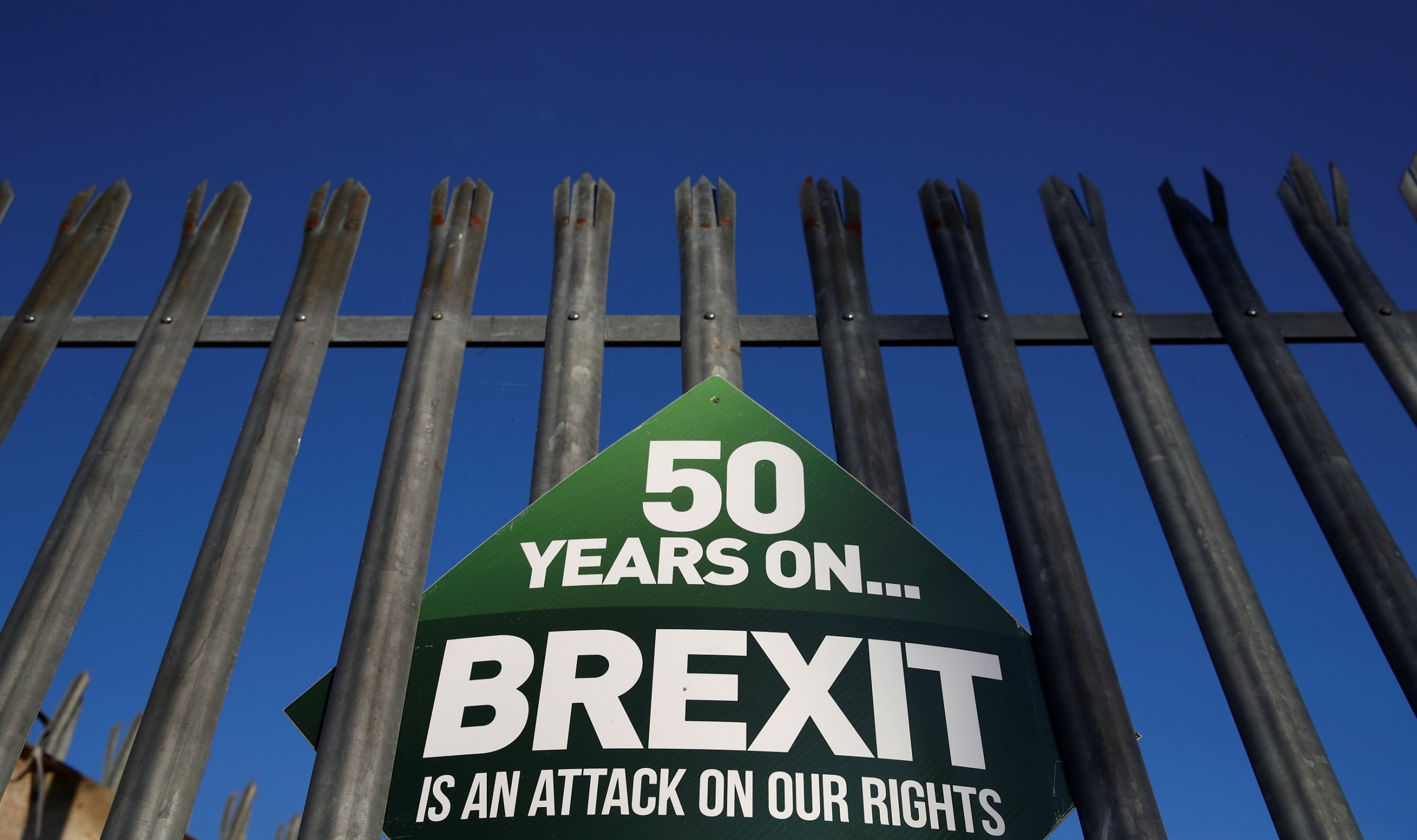What does the Sinn Fein-SDLP electoral pact in Northern Ireland mean for Brexit?
The Tactical Voting Blog: The pact is likely to cost the DUP seats

Your support helps us to tell the story
From reproductive rights to climate change to Big Tech, The Independent is on the ground when the story is developing. Whether it's investigating the financials of Elon Musk's pro-Trump PAC or producing our latest documentary, 'The A Word', which shines a light on the American women fighting for reproductive rights, we know how important it is to parse out the facts from the messaging.
At such a critical moment in US history, we need reporters on the ground. Your donation allows us to keep sending journalists to speak to both sides of the story.
The Independent is trusted by Americans across the entire political spectrum. And unlike many other quality news outlets, we choose not to lock Americans out of our reporting and analysis with paywalls. We believe quality journalism should be available to everyone, paid for by those who can afford it.
Your support makes all the difference.Republican and pro-remain parties in Northern Ireland announced an electoral pact of sorts on Monday morning that will probably end up costing the DUP seats.
The Social Democratic and Labour Party (SDLP) says it it won't run in Northern Belfast, East Belfast, or North Down; while Sinn Fein will stand aside in South Belfast, East Belfast, and North Down.
The move is almost certain to cost the DUP seats: one is a near certainty, and more are possible. It could also deny the DUP a possible gain. It's the sort of pact Remainers have only dreamed of in Great Britain, and while it only affects a handful of MPs it could make a difference in a hung parliament.
In Belfast North, Sinn Fein now gets a clear run to unseat DUP Westminster leader Nigel Dodds, a keen eurosceptic. Last time they lost by 46.2 per cent to 41.7 per cent. The SDLP took 4.5 per cent of the vote, meaning the seat is now firmly in contention.
Dodds himself benefited from the Ulster Unionist Party not standing at the last election, and will do so again.
Meanwhile the SDLP will be the Republican challenger in Belfast South, where they lost to the DUP by 30.4 per cent to 25.9 per cent. Sinn Fein took a hefty 16.3 per cent of the vote there, meaning the SDLP are odds-on to return to the Commons.
In Belfast East it is the liberal cross-community Alliance party and its leader Naomi Long that will benefit: she may be able to beat the DUP if there is a groundswell against Brexit, though last time she was 8,474 votes behind, far more than the combined shares of the SDLP and Sinn Fein in that seat. In North Down independent MP Slyvia Hermon, a staunch remainer, is in with a better chance of retaining her seat, where the DUP is snapping at her heels.
The inclusion of Hermon, who was previously a member of the Ulster Unionist Party, illustrates how the agreement is more in aid of Remain than it is of republicanism.
While trying to work out the effect on a future House of Commons, it's important to remember that Sinn Fein do not take their seats and will never do so, so a gain for them simply results in one fewer DUP vote. Meanwhile, an SDLP or Alliance gain means one fewer DUP vote and one extra vote against Brexit. In Hermon's case, Remainers are seeking to preseve a vote they already have.
There are caveats of course. Voters are not automatons and don't always neatly transfer between parties as their leaderships would wish. But if such a pact would have an effect anywhere it would be in Northern Ireland, with its more polarised voting community blocs.
It's also important to remember that the DUP is not currently voting with the government on Brexit and opposes Boris Johnson's deal, which the prime minister intends to pass without them. But given the lack of other potential pro-Brexit allies in the Commons, a weakened caucus for them in Westminster would further limit Boris Johnson's room for manoeuvre in a hung parliament.
Join our commenting forum
Join thought-provoking conversations, follow other Independent readers and see their replies
Comments